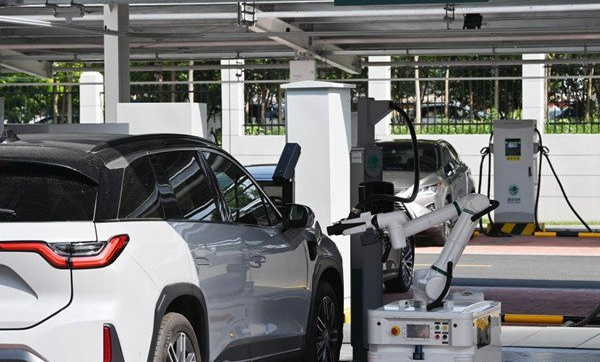
Currently, most new energy vehicles equipped with fast charging interfaces take about an hour to fully charge. While many models claim fast charging in just half an hour, the reality is that this refers to charging from 30% to 80% capacity within that time frame.
During fast charging between 30% and 80% capacity, the charging power is at its peak. However, after reaching 80%, the charging power significantly decreases. Additionally, to extend battery life, most electric vehicle batteries start with low power when charging below 30%, reaching peak power only after exceeding 30%. Consequently, achieving a full charge for new energy vehicles typically takes around an hour.
In contrast, using slow charging depends on battery capacity and vehicle model. Most pure electric vehicles have battery capacities ranging from 50% to 80%, requiring 6 to 10 hours for a full charge.
Compared to pure electric vehicles, plug-in hybrid or range-extended hybrid vehicles have lower slow charging power. Thus, even with smaller battery capacities, charging times are longer. For hybrid models with a range of 50 to 200 kilometers, it takes 2 to 7 hours for a full charge using slow charging.
As for pure electric micro-cars, charging power is even lower. For example, the Wuling Hongguang MINI, equipped with a 13.9 kWh battery pack and a range of 170 kilometers, requires about 9 hours for a full charge using slow charging.
So, what's the best way to charge an electric vehicle?

The key is to avoid overcharging and over-discharging. Charging the battery to around 80%-90% maximizes battery lifespan, minimizing capacity degradation. Hence, most manufacturers set fast charging ranges between 30% and 80%.
Generally, discharging below 20% is considered over-discharging, which can accelerate capacity degradation and shorten battery lifespan. Therefore, it's advisable to avoid frequent deep discharges before recharging.
Moreover, if possible, using slow charging is preferable. While most electric vehicles may not show significant degradation after long-term fast charging, real-world tests and user feedback indicate that slow charging yields better results. Under similar conditions, vehicles charged slowly achieve noticeably higher range rates compared to fast charging counterparts.



SHENZHEN DMIC CO.LTD
Office Add:No.1408, Building 8, Qianhai Kexing Science Park, Xixiang Street Baoan District, Shenzhen China(518102)
Blog
sitemap
Privacy Policy
XML
© 2026 Shenzhen DMIC Co.,LTD. All Rights Reserved .  network supported
network supported